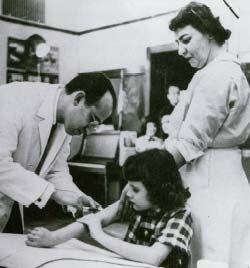There was a comment in the last posting on Has philanthropy grown comfortable with mediocrity that I wanted to bring forward as a post because I think the author Mary has some very valid points.
I wonder if community solutions (like your examples of after school programs, or
prison-to-community reentry programs) are seemingly less attainable because
foundations in a community don't talk to each other, come up with common goals,
and strategize about how to attain those goals. Furthermore, the folks who would
create these programs often don't have the training to do effective PR, media
outreach, and development, along with launching a project. If nonprofit managers
don't know how to do outreach, and can't talk to grant makers- is it reasonable
to assume that a program can be created ? I know that community foundations and
regional grant making organizations are supposed to foster these
meetings/conversations (both amongst each other and with nonprofits) - but I'm
not sure they really are. Perhaps, like the COF Summit is meant to bring
together different types of grant makers for conversation and collaboration,
regional grant makers need to encourage an agenda and a common set of goals
(along with the appropriate government forces)similar to the millennium goals
set by the UN? So I guess the question now becomes - how do we foster effective
communication in order to set a clear set of needs within a community- and get
grant makers to buy-in to that agenda? Should encouraging regional grant making
umbrella organizations to promote these conversations and a unified agenda be a
priority emphasized in the national philanthropy community? I can't help but
think this will be a forum that will have to be approached from the younger
folks involved in the philanthropic community- as it is a fundamental paradigm
shift from the way grant making is approached now.
What do you think? Could millennium goals for the foundation sector work? How can we all get on the same page for a greater impact?


